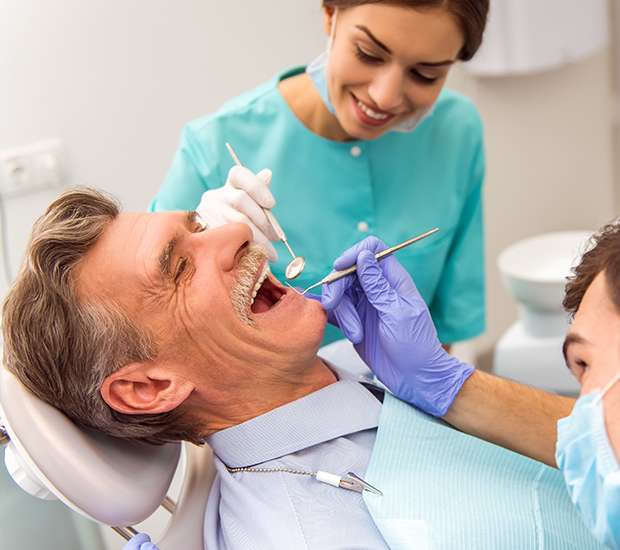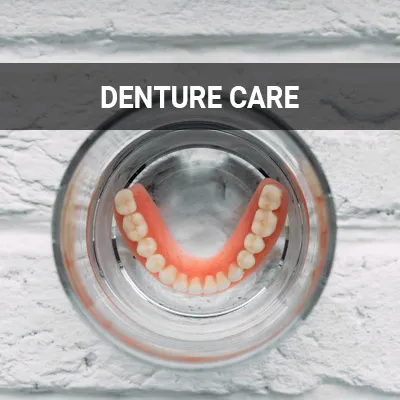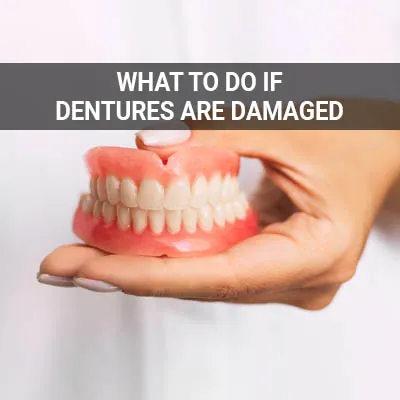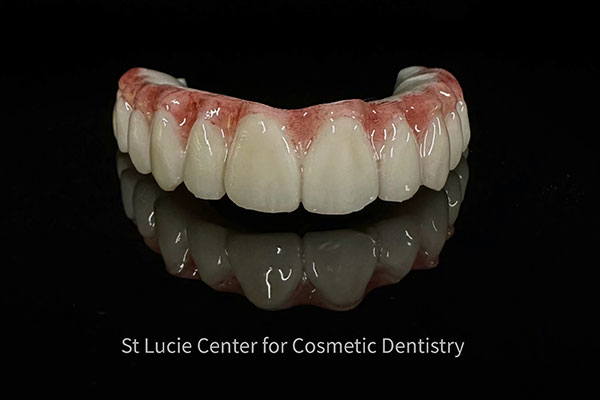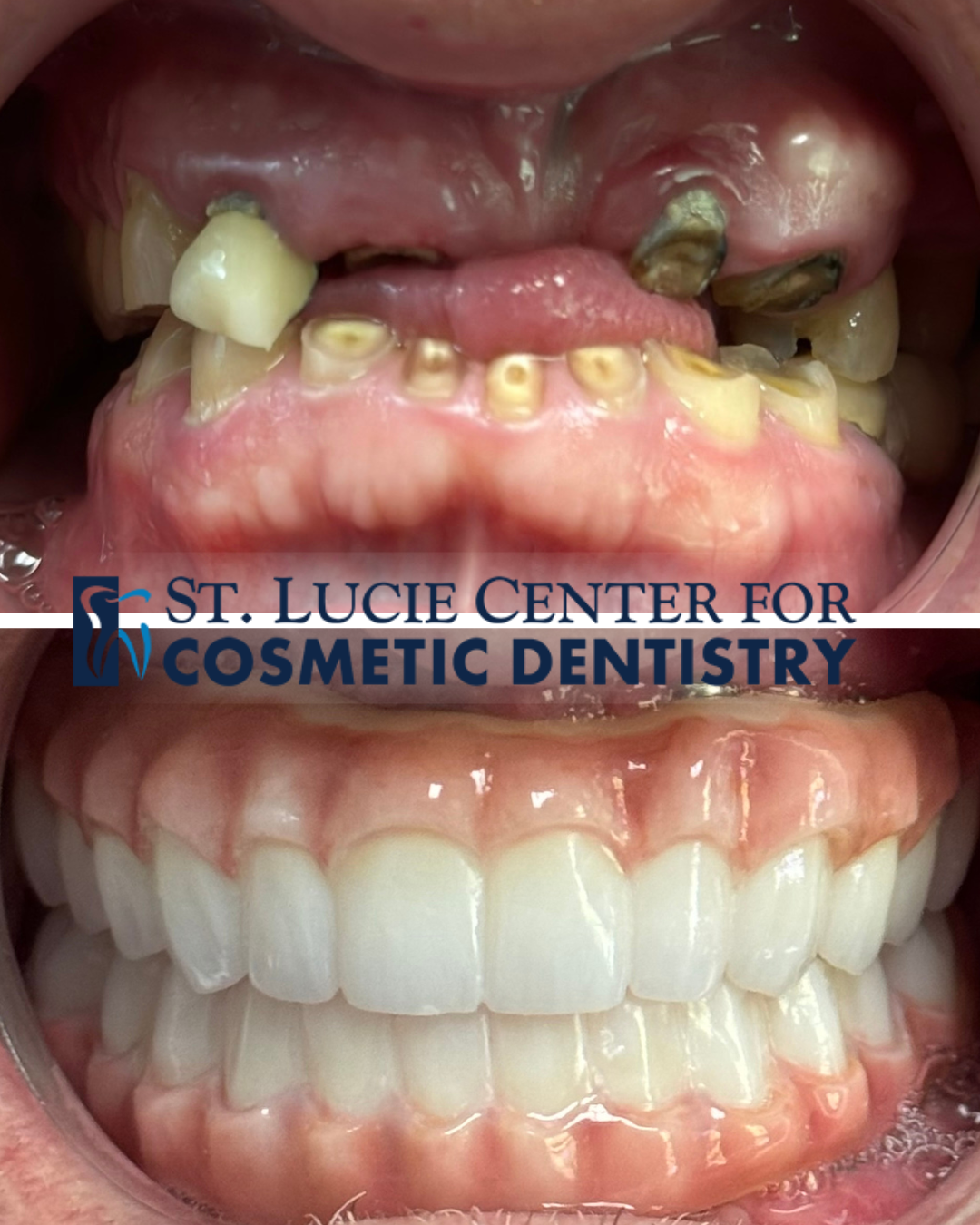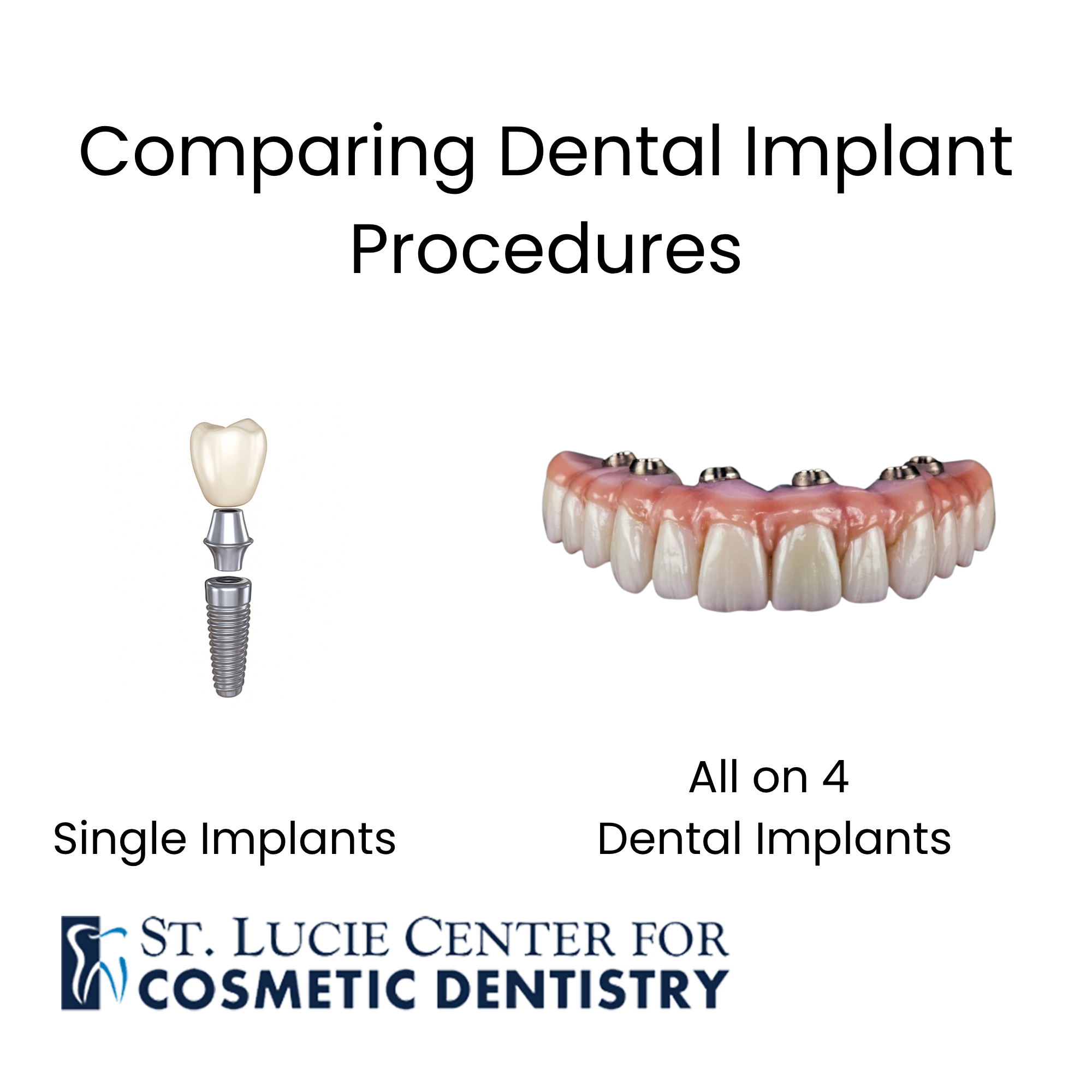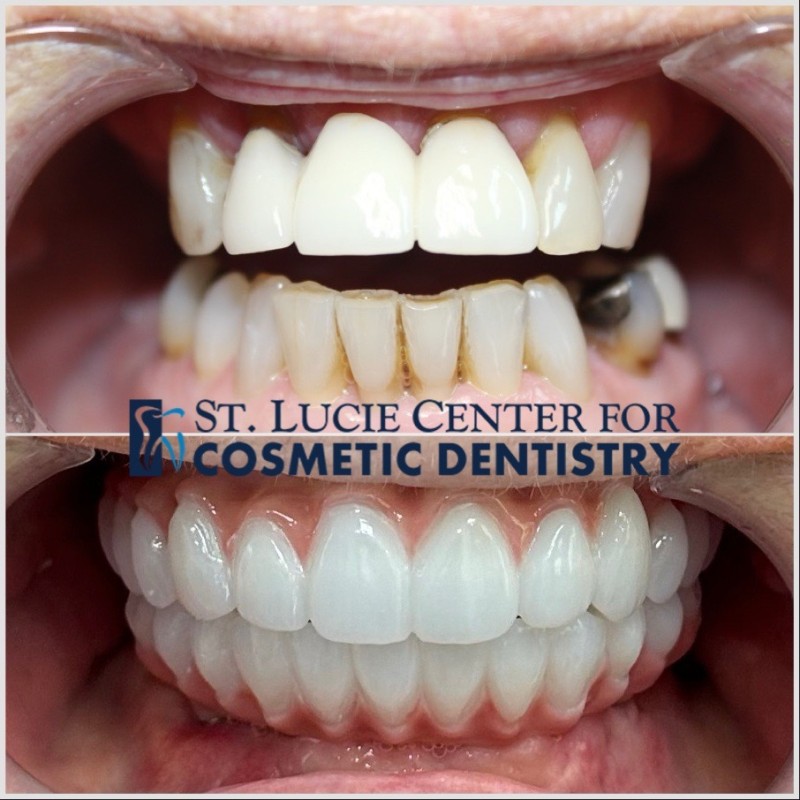Denture Adjustments and Repairs Port St. Lucie, FL
From time to time, dentures need to be adjusted or repaired to ensure optimal comfort and effectiveness. Your mouth changes over time, and your dentures need to change with it. Denture adjustments and repairs can help make that possible. These involve corrections to dentures to fix issues with fit, comfort, and minor damage.
Denture adjustments and repairs are available at St Lucie Center for Cosmetic Dentistry in Port St. Lucie and the surrounding area. We help patients maintain their dentures and keep them as comfortable as possible. For help keeping your dentures in top shape, call (772) 242-4124 to schedule an appointment and learn what options are available to you.
The Repair Process and Expected Length of Time
The repair process will depend on the type of damage the denture has sustained. For example, if a part of the denture is missing, a laboratory technician can repair it by creating a mold of the original denture attachment. On the other hand, if a patient has saved the broken-off piece, it may be possible to glue it back onto the device. Other repairs, such as a denture that has split in two, require more intensive repair. This type of damage will require the two pieces to be glued together and repaired by adding another protective layer of acrylic resin.
It may also be necessary to insert a piece of metal through both pieces before gluing them together. In many cases, denture repairs can take as little as a day to complete since patients need them repaired as soon as possible. Our team will carefully assess the damage to provide patients with an estimated repair timeline.
“The repair process will depend on the type of damage the denture has sustained.”
Common Types of Denture Repairs
The common types of denture repairs include denture relines, rebasing, and adjustments. A denture reline involves resurfacing parts of a denture that have worn down or become damaged. A soft reline adds a liquid polymer into a denture to add cushion and make it more comfortable. A hard reline reshapes the damaged portion of a denture with a resin material that hardens like a denture base, resulting in a more permanent repair than soft relines.
A denture rebase involves replacing the acrylic bottom of a denture to make it more stable without deconstructing the entire prosthetic. It is a beneficial repair for older dentures that have sustained a fracture. Denture readjustments are when a person has their dentures adjusted to ensure a proper. People with dentures that have worn down or experienced changes in their facial structure should have a denture adjustment. This repair prevents dentures from loosening or shifting and causing discomfort.
“The common types of denture repairs include denture relines, rebasing, and adjustments.”
Signs That Denture Adjustments and Repairs Are Needed
Paying attention to signs of damage or poor fit can help keep dentures in good condition longer. Schedule an appointment with our dentist for denture adjustments and repairs upon noticing any problems. These are some signs that a dentist appointment may be needed:
- Damaged Teeth. If there are any visible signs of damage to the teeth, schedule an appointment. Damage is often caused by accidents such as dropping the dentures. Eating while the dentures are loose may also initiate problems.
- Damaged Base. Watch for any cracks or chips in the base. Visit our practice even for small cracks. If left unchecked, a crack can cause significant damage that may require a major repair or replacement.
- Loose Dentures. Poorly fitting dentures may need adjustment. A poor fit can be uncomfortable and may lead to damage. This is common after first receiving dentures.
- Discomfort. Dentures should sit in your mouth comfortably as you talk, smile, and eat. See our dentist for an adjustment in the event of discomfort or pressure sores. It is common to need one or more adjustments on a new set of dentures.
“Visit the dentist for denture adjustments and repairs upon noticing any problems.”
Check out what others are saying about our dental services on Yelp: Denture Adjustments and Repairs in Port St. Lucie, FL
What to Do About Stains on Dentures
Using appropriate denture care routines goes a long way toward keeping them clean. An article in the Journal of Applied Oral Science points out that regular brushing and denture cleansing solutions are necessary to get rid of harmful microbes. A proper cleaning routine will keep the mouth healthy and prevent stains from occurring. However, sometimes stains persist. While many people reach for regular tooth whitening products, it is important to know that they are not appropriate for dentures and can even damage them.
Our team can help with persistent stains by performing an in-office cleaning or providing a specialty cleaning product that is effective and denture-safe. To minimize staining, rinse the dentures immediately after ingesting substances such as coffee or wine that commonly cause stains. Seeing a dentist according to the recommended schedule, closely following denture care instructions, and seeing a dentist are some other ways to keep dentures in great condition.
“To minimize staining, rinse the dentures immediately after ingesting substances such as coffee or wine that commonly cause stains.”
Questions Answered on This Page
Q. How do I know if I need denture adjustments or repairs?
Q. What is the denture repair process?
Q. What are the common types of denture adjustments?
Q. What to do about stains on dentures?
Q. What are the benefits of repairing dentures?
People Also Ask
Q. What should new denture wearers expect during the first 30 days?
Q. How do I clean my dentures?
Q. How can I tell if my dentures need to be relined or rebased?
Q. What are partial removable dentures for one missing tooth?
Benefits of Repairing Dentures
It is crucial to seek professional repairs when a denture is damaged. Attempting to fix the damage at home will make the issue worse and even necessitate more costly repairs. The right course of action is to get in touch with the dentist's office and make an appointment as soon as possible.
The earlier the dentist can fix the problem, the better. Getting ill-fitting or damaged dentures repaired will alleviate discomfort and improve your oral health. It will also restore the mouth's functionality so patients can eat, speak, and smile with confidence.
“Attempting to fix the damage at home will make the issue worse and even necessitate more costly repairs.”
Frequently Asked Questions About Denture Adjustments and Repairs
Q. Can I fix my dentures at home?
A. Even a seemingly simple fix is better left to a qualified professional. Attempts to make denture adjustments and repairs at home often cause damage that can take longer to repair or even necessitate a replacement. People who use over-the-counter denture repair kits should follow instructions to the letter and be aware that this is not a permanent solution but a stopgap measure until a visit to the dentist is possible.
Q. How can I reduce the risk of cracking or chipping my dentures?
A. Chips and cracks are common reasons patients need denture adjustments and repairs. Handle and clean dentures over a soft surface such as a towel, never over the sink or countertop. Avoid biting down on hard foods that can cause damage.
Q. Is there any way to completely avoid denture adjustments and repairs?
A. Most patients end up needing to see a dentist for repairs or adjustments at some point. Following proper care routines can cut down on this necessity. However, normal wear and tear and changes to the shape of the mouth can still make it necessary to get adjustments or repairs.
Q. Can a damaged denture be worn if it is not uncomfortable?
A. While comfort is a major factor, there are other reasons to seek prompt help for damaged dentures. Uneven surfaces or a bad fit can gradually cause irritation, sores, and even infections in the mouth. It is preferable to get denture adjustments and repairs before a small problem gives rise to serious issues.
Q. Can bleach be used to get rid of stains on dentures?
A. Modifying dentures can cause minor speech and eating issues. However, these will go away with a little practice. Properly-fitting and well-maintained dentures become more comfortable to eat and speak with over time.
Q. Where are denture adjustments and repairs available?
A. The Mayo Clinic warns against using products containing bleach on dentures. Bleach can weaken the structure and degrade the materials of the dentures. A dentist can help with stains, as well as with any other necessary adjustments and repairs.
Dental Terminology
Learn More About Denture Adjustments and Repairs
Denture adjustments and repairs can help many patients with their replacement teeth. Our practitioners are happy to discuss what modifications may be necessary for your dentures. Call St Lucie Center for Cosmetic Dentistry at (772) 242-4124 to set up an appointment and learn more.
Helpful Related Links
- American Dental Association (ADA). Glossary of Dental Clinical Terms. 2024
- American Academy of Cosmetic Dentistry® (AACD). Home Page. 2024
- WebMD. WebMD’s Oral Care Guide. 2024
About our business and website security
- St Lucie Center for Cosmetic Dentistry was established in 1984.
- We accept the following payment methods: American Express, Cash, Check, Discover, MasterCard, and Visa
- We serve patients from the following counties: St. Lucie County
- We serve patients from the following cities: Port St. Lucie, River Park, White City, Fort Pierce, Fort Pierce South, St Lucie West, Tradition, Palm City, Jensen Beach, and Stuart
- Norton Safe Web. View Details
- Trend Micro Site Safety Center. View Details
Back to top of Denture Adjustments and Repairs
